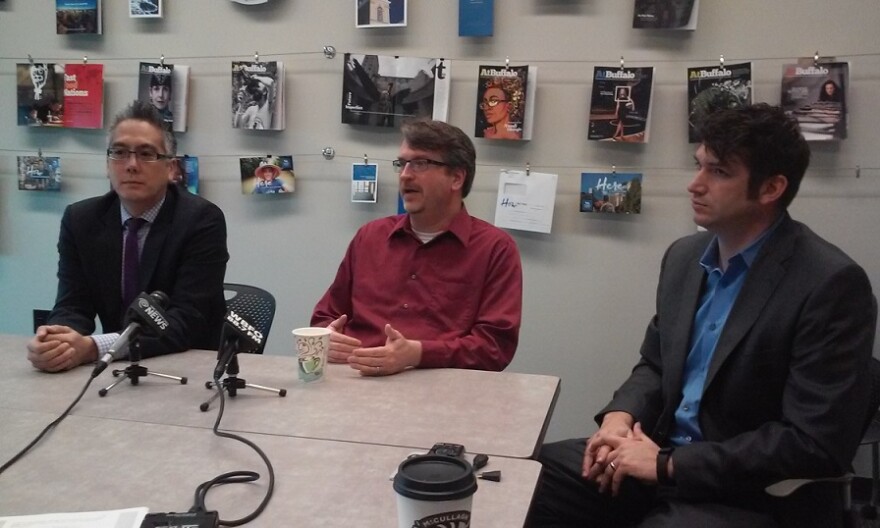He pulled off a stunning upset Tuesday, but when Donald Trump takes office in January, what could we expect from his administration? A panel of professors at the University at Buffalo took questions regarding the forthcoming arrival of the Trump Administration.
A handful of professors at the University at Buffalo offered an informal question-and-answer period this morning to scratch the surface of Donald Trump's election to the White House.
The political science experts on the panel say Trump is not an ideologue and is coming into power by successfully gaining the support of many who would otherwise back the Democratic Party and its traditional values.
Among the demographics where Trump fared well were union workers. Professor Antoine Yoshinaka says many blue collar workers were saying, through voting, that they've had enough of being hurt by trade deals brokered by the establishment. It was Hillary Clinton who paid the price.
"Her husband is associated with NAFTA, so she couldn't sort of distance herself too much, in a credible manner, from free trade," Yoshinaka said. "I think Trump really won the vote of many union voters by focusing on that one issue."
It's the fate of other issues championed by the progressive left that worries many on that side of the ideological spectrum. The issues include immigration, same-sex marriage and legal abortion.
While there may be some states that challenge the legality of same-sex marriage, political science professor James Battista believes legal same-sex marriage is here to stay.
"That worm, I think, has turned," Battista said. "I think if you start putting out there state-level referenda, you're going to see a lot of states where same-sex marriage is a boring non-issue or popular."
Battista and Yoshinaka both hint that various poll show a growing tolerance for homosexuality, thus easing the fear of the future of same-sex marriage.
Legal abortion, on the other hand, is more at risk they believe. Trump will get to nominate a candidate to fill the U.S. Supreme Court seat vacant since the death of Justice Antonin Scalia. He has Republican majorities in the House and Senate that will swear in as Trump begins his term. Many hoping to see Roe v. Wade overturned have higher hopes that Trump will find the justices to make that possible.
The panelists are not ready to predict a full reversal just yet. They anticipate tighter restrictions to access for most cases.
"The major decisions on abortion were really handed down some time ago," Yoshinaka said. "We don't really know where folks like the Chief Justice (John Roberts) would rule and even Anthony Kennedy. I wouldn't necessarily predict that they'd overturn overnight. But certainly, it's not a good day for the pro-choice movement."









